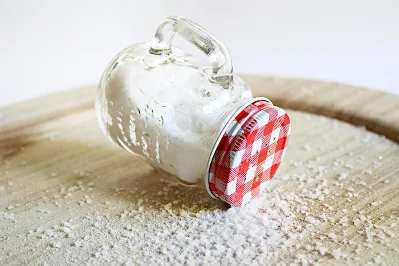The Link Between Salt Intake and Hypertension: How to Enjoy Salt Without Worrying About High Blood Pressure
Understanding the Impact of Salt on Hypertension
Salt consumption has a well-known connection to hypertension (high blood pressure), a major risk factor for cardiovascular diseases. While salt is essential for the body in small amounts, excessive intake can lead to serious health concerns. In this post, we will explore the relationship between salt intake and hypertension and provide tips on how to enjoy salt without worrying about high blood pressure.
What is Hypertension?
Hypertension is a condition where the blood pressure in the arteries is consistently high. It can cause damage to the heart and blood vessels, leading to serious complications like heart disease, stroke, and kidney damage.
Why Does Salt Affect Blood Pressure?
Salt contains sodium, which plays a crucial role in maintaining fluid balance in the body. When you consume too much salt, the body retains more water, which increases blood volume. This leads to higher blood pressure. Over time, high blood pressure can strain the heart and blood vessels, increasing the risk of heart disease and stroke.
According to the World Health Organization (WHO), excessive sodium intake is a major contributor to hypertension worldwide.
How Much Salt Should You Consume?
The WHO recommends that adults consume no more than 2,000 mg of sodium per day, which is equivalent to about 5 grams of salt. However, many people consume much more than this, especially with the widespread use of processed and packaged foods.
The Link Between Salt and Hypertension: What the Research Shows
Research shows that there is a strong correlation between high sodium intake and the risk of developing high blood pressure. In fact, cutting down on salt can significantly reduce blood pressure levels, especially in individuals who are already at risk for hypertension.
A study published in the Journal of the American College of Cardiology suggests that reducing salt intake can lower the risk of developing heart disease and stroke. According to the study, a reduction of just 1 gram of sodium per day can lower the risk of cardiovascular diseases by 10%.
How to Enjoy Salt Without Worrying About High Blood Pressure
While it may seem like avoiding salt completely is the best solution, it is not necessary to eliminate it from your diet altogether. Here are some practical tips to help you enjoy salt without the risk of hypertension:
1. Reduce Processed Food Intake
Processed foods, such as canned soups, snacks, and ready-to-eat meals, are often high in sodium. Try to limit these foods and cook more meals from scratch using fresh ingredients.
Example: Instead of buying pre-packaged soup, make your own at home using fresh vegetables and low-sodium broth.
2. Control the Salt in Cooking
When cooking at home, try to reduce the amount of salt you add to your dishes. Use other herbs and spices to enhance the flavor of your food.
Example: Instead of adding salt to your pasta sauce, try using garlic, basil, and oregano to give it a more vibrant taste.
3. Use Natural Seasonings
Instead of relying on salt, try using natural seasonings like lemon juice, vinegar, or spices like cinnamon and paprika to add flavor to your meals.
Example: For a salad dressing, use olive oil and balsamic vinegar with a sprinkle of black pepper instead of a store-bought dressing that might contain added salt.
4. Eat More Fresh Fruits and Vegetables
Fresh fruits and vegetables are naturally low in sodium and high in potassium, which helps counteract the negative effects of sodium on blood pressure.
Example: Snack on an apple or a handful of baby carrots instead of salty snacks like chips or pretzels.
5. Read Nutrition Labels
Always check the nutrition labels of packaged foods to see how much sodium they contain. Choose foods that are labeled “low sodium” or “no added salt” whenever possible.
Example: When buying canned beans, opt for a “low-sodium” variety, which has significantly less salt compared to regular canned beans.
Conclusion: Maintaining a Healthy Salt Intake
Salt is an essential part of our diet, but like everything, it’s best consumed in moderation. By being mindful of how much salt you’re consuming and making a few simple changes to your diet, you can enjoy your meals without putting your health at risk. Remember, the key is balance—enjoying the flavor of salt while keeping your blood pressure in check.




